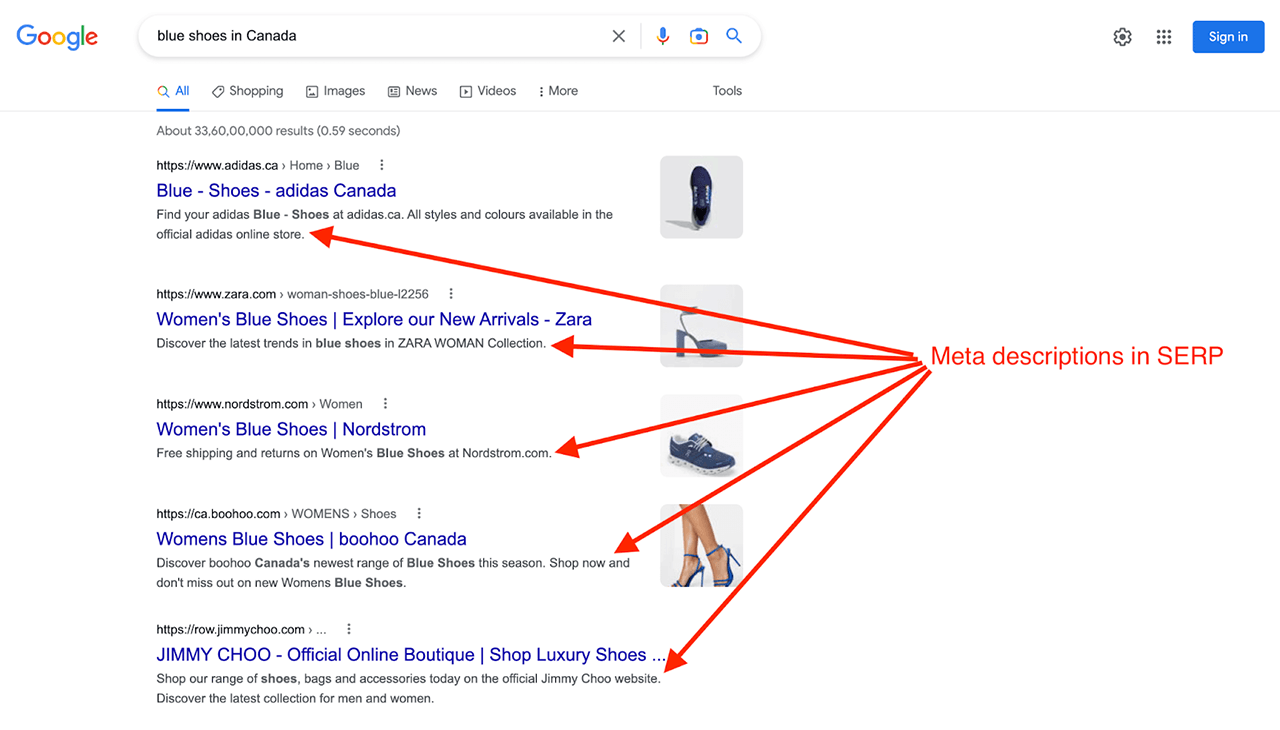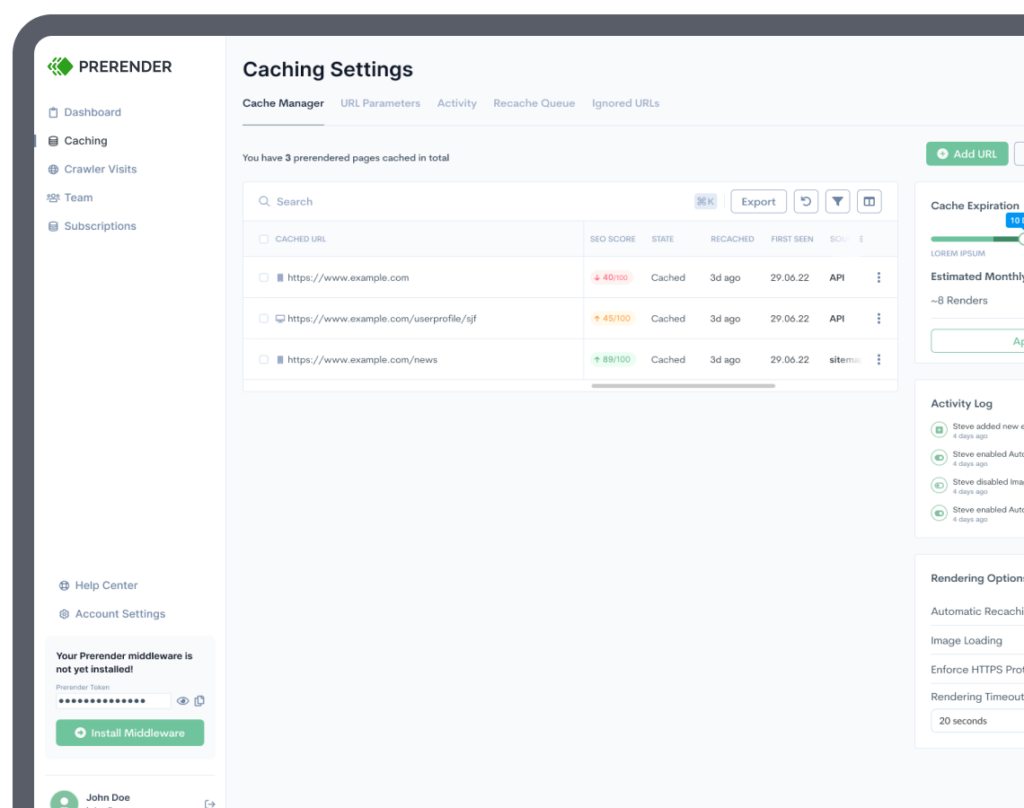In ecommerce, top search rankings are essential for driving traffic and sales. Unfortunately, many products never show up in SERPs; they are buried in the digital abyss, struggling to rank.
So, how can you make ecommerce products rank higher?
There are many reasons why products don’t rank, and not all of them are related to SEO. From generic product listings to challenges with user experience and poor product ratings, identifying and solving these problems can be the key to the success of your online stores.
Here’s some key reasons your ecommerce products aren’t ranking and how to address them.
1. Unoptimized Product Descriptions
Product descriptions are an important part of ecommerce product pages. If your product descriptions, titles, and other content elements are either missing, too thin, or copied from a different website, they’ll likely have a negative affect on your ecommerce product rankings.
Therefore, optimizing your product description to be as detailed as possible is key to getting your ecommerce products to rank high on SERPs. Try to ensure that each product:
-
- Has a unique and detailed description
-
- Includes key product features and benefits
-
- Is catered to target relevant search intent
2. Slow Website Speed and Loading Time
According to Google, 53% of users will leave a page if its mobile site takes longer than 3 seconds to load. And for ecommerce websites, the number goes even higher. In fact, 90% of shoppers claim to abandon an ecommerce website because of its slow PageSpeed.
A fast and responsive website improves customer satisfaction and conversion rates. In contrast, a slow website can cause higher bounce rates and decrease user engagement. When search engines see users fleeing your ecommerce website, they will respond by lowering your rank.
Now, considering that many ecommerce companies use JavaScript, which is known for slow page loading time, it can cause complex crawling and indexing issues for your products. One easy solution to improve your SEO crawling performance is with a tool like Prerender.
The technical SEO tool solves JavaScript challenges by caching and feeding a fully rendered version of your JS-product pages to search engine bots and directing users’ requests through the normal route. This improves your page crawling and indexing performance, as well as boosts your PageSpeed, increasing your chance of ranking in SERPs. With Prerender, you can expect less than 50 milliseconds of server response time (SRT) without sacrificing user experience!
3. Failure to Respond to Algorithm Changes
Search engines like Google regularly roll out algorithm updates, and ecommerce websites that don’t evolve with them will fall behind. When a site is optimized for an outdated algorithm that no longer matches how search engines evaluate pages, the content, technical factors, backlink profiles, and other elements become less powerful when boosting their SEO and rankings.
This emphasizes the importance of closely monitoring algorithm updates and quickly determining how the old and new factors are being weighted and how your pages are now stacking up. From there, you must align your SEO strategies (the on-page, off-page, and technical SEO elements) and the site design to match the new algorithm’s changes.
Keep in mind that if you don’t implement the necessary ecommerce SEO updates to match algorithm changes, your products will suffer a steady decline in organic search visibility.
4. Empty Meta Descriptions and Page Titles
Search engines use meta descriptions and titles to understand what a web page is about, making them vital factors to get your products to rank.

An optimized title tag that describes the product with relevant keywords can improve click-through rates (CTR) from the SERPs. Generally, higher click-throughs suggest the listing provides a good user experience, which search engines will reward with a ranking booster.
Besides the title tag, meta description also plays a vital role. Write a meta description that summarizes the product function, its key features, and benefits. Having meta descriptions that are repetitive or contain irrelevant information could discourage people from clicking, even if the listing ranks well. Although meta tags are not direct ranking factors, compelling title tags, and meta descriptions help attract users once your product listing appears in search results.
5. Poor Mobile Experience
Today, mobile users are the biggest consumers of ecommerce products.
Statista claims that 74% of traffic and 63% of orders come from mobile. So, if your ecommerce site is not optimized for mobile, your product rankings will suffer. Optimizing your site with a mobile-first approach will directly improve your product ranking and sales.
Top tip: Learn how to create a mobile-friendly JavaScript website by following these 7 tips.
6. Negative Product Reviews
Many people check product reviews before buying a product, and so do search engines.
Search engine algorithms strongly weigh product reviews and ratings. They try to put the best at the top. As bad reviews accumulate on a product page, it reduces trust and confidence in the product’s quality and value—and ultimately, ruins the product’s ranking potential.
Even if a listing ranks well initially, the negative reviews will discourage organic traffic from clicking the product page from SERPs. Because search algorithms monitor clicks and user behavior as ranking factors, reduced traffic and engagement will, over time, cause the listing to be ranked lower and lower. So, encouraging positive customer reviews and addressing the issues raised in bad reviews are an important element of product listing optimization.
The more positive reviews you have, and the higher your star ratings are, the better your chances of improving product’s rankings.
Optimize Your Ecommerce Products for Higher Rankings
Getting product listings to rank is no walk in the park. While all 6 reasons mentioned above are vital, slow page loading and poor mobile-friendliness are key. Luckily, both problems can be easily solved by adding Prerender to your website by following these few simple steps.
Prerender helps significantly reduce the time it takes for your products to be indexed while also boosting page speed and user satisfaction. This way, you serve an interactive shopping experience for your customers and speedy and SEO-optimized websites for search engine crawlers—getting the best of both worlds! Get started with Prerender now to see the impact.
If your website has over 10,000 URLs, you could qualify for a FREE live Javascript SEO Audit.



